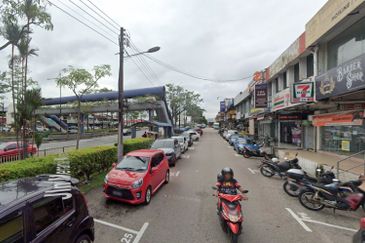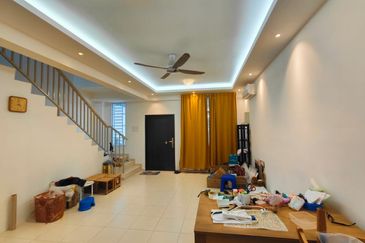KUALA LUMPUR (July 18): Weakness in the global outlook clouds Malaysia’s prospects given the country’s close integration with the world economy, according to the Asian Development Bank (ADB).
In its revised Asian Development Outlook (ADO) 2012 released last week, the ADB said growth in Malaysia is moderating to about 4% in 2012, then quickening to 5% in 2013 as the external environment improves and domestic demand will again play its role to anchor growth in the region.
“Private consumption will have to depend on the government’s plan in 2012 to raise wages for the public sector and also for their one-time offer of cash payment to the low- and middle-income groups which constitute 53% of all households in Malaysia,” ADB said.
It added that the labour market is likely to soften this year, particularly in the trade-exposed industries. Job vacancies in January 2012 declined steeply from a year ago. Consumer sentiment weakened late last year.
Private investment in export-oriented industries such as electrical and electronics products will be subdued by the weak global outlook this year, although investment will likely be relatively buoyant in industries that depend on domestic demand. The ADB said the government is pressing ahead with its Economic Transformation Programme launched in 2010 and will proceed all the way to 2020.
“This US$58 billion (RM183 billion) programme was introduced for development of higher value-added industries and infrastructure in partnership with private investors.
“Included in this programme are construction projects such as the US$11.5 billion mass rapid transit rail system in Kuala Lumpur, the redevelopment of the Sungai Besi military airbase and a large site near the centre of the capital for residential and commercial purposes,” it said.
The ADB said the production sector will play a role in driving growth in 2012. “The government has eased some restrictions on foreign investments in 17 services subsectors such as accounting, education, legal and medical services, following a similar move for 27 subsectors back in 2009.
“Inflation rate will most likely recede to 2.4% because of the moderation of domestic demand coupled with the lower prices of imported commodities,” the ADB said.
The ringgit appreciated by 3.4% against the US dollar in the first quarter of 2012 and this helped to dampen inflation which is predicted to pick up to 2.8% in 2013. The ADB said Malaysia’s exports of merchandise will most likely drop this year due to torpid global trade and softer price of export commodities such as palm oil. Imports will increase at a modest rate with forecasts of substantial surpluses, it said.
“Subsidies for fuel, staple foods, electricity, health and education rose from 1.3% of total government spending in 1990 to 14.3% in 2011, which is about 4% of the GDP.
“Subsidies reduce inflation but raise fiscal deficit, reduce budget funding for social and economic development, and distort resource allocation,” the ADB said. It said developing Asia will expand by 6.6% this year and 7.1% next year, lower than the 6.9% and 7.3% forecasts in ADB’s ADO published in April.
This article appeared in The Edge Financial Daily on July 18, 2012.
TOP PICKS BY EDGEPROP

Bandar Puncak Alam
Bandar Puncak Alam, Selangor

Pangsapuri Orchid View Luxury Apartment
Johor Bahru, Johor

TriTower Residence @ Johor Bahru Sentral
Johor Bahru, Johor

Taman Bukit Indah @ Iskandar Puteri
Johor Bahru, Johor





















